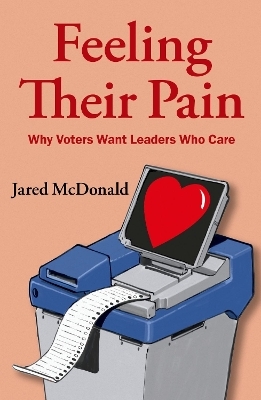
Feeling Their Pain
Oxford University Press Inc (Verlag)
978-0-19-769689-7 (ISBN)
McDonald shows that perceptions of compassion in candidates for public office are based on the number and intensity of commonalities that bind citizens to political leaders. Commonalities can come in many forms, such as a shared experience ("I've been through what you've been through"), a shared emotion ("I feel the way you feel"), or a shared identity ("I am who you are"). Compassion is conceptualized through the lens of self-interest. Compassion may be universal, such as when candidates convey empathy to all individuals who are struggling. Or compassion may be exclusionary, such as when candidates express a preference for some groups over others. Thus, the way campaigns choose to wield compassion in their messaging strategies has important implications not only for election outcomes, but for American political polarization as well.
Jared McDonald is an assistant professor at the University of Mary Washington. Jared's research examines how Americans process political information, update their preferences, and hold politicians accountable in the modern polarized era. He is the co-author of Citizens of the World: Political Engagement and Policy Attitudes of Millennials across the Globe (Oxford University Press, 2023). His other work has been featured in The Journal of Politics, Political Behavior, and Electoral Studies, Gender & Politics, Politics, Groups, & Identities, and The Journal of Experimental Political Science, among others.
1. Introduction
2: Who Cares? Why Compassion Matters in the Era of Polarization
3: Empathy through Commonality
4: Compassion, Gender, and Parenthood
5: The Dark Side of Compassion
6: Compassion and its Value for Politics
References
| Erscheinungsdatum | 22.12.2023 |
|---|---|
| Verlagsort | New York |
| Sprache | englisch |
| Maße | 235 x 156 mm |
| Gewicht | 422 g |
| Themenwelt | Sozialwissenschaften ► Pädagogik |
| Sozialwissenschaften ► Politik / Verwaltung ► Vergleichende Politikwissenschaften | |
| ISBN-10 | 0-19-769689-9 / 0197696899 |
| ISBN-13 | 978-0-19-769689-7 / 9780197696897 |
| Zustand | Neuware |
| Haben Sie eine Frage zum Produkt? |
aus dem Bereich


